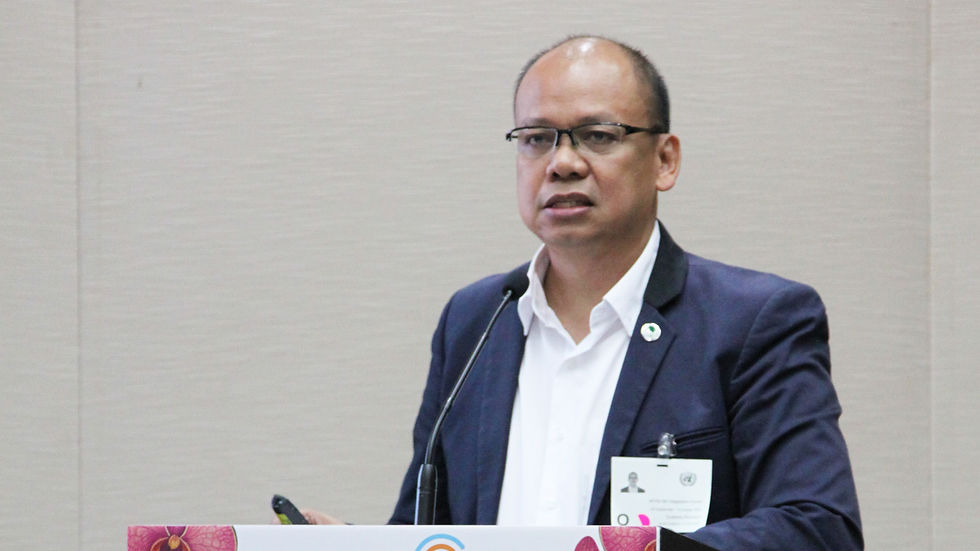AIT Assumes Ownership of USAID Adapt Asia-Pacific Training Programme
- Sep 5, 2017
- 2 min read
4-5 September 2017 | Bangkok, Thailand
Problem and objectives tree, logical framework, adaptation vs. development, and safeguards are just some of the key concepts taught in the acclaimed Training Programme on Managing Project Preparation for Climate Change Adaptation developed by the USAID Adapt AsiaPacific project. As the six‐year USAID project concluded in September 2017, the Asian Institute of Technology now assumes the ownership for the delivery of the Training Programme under the umbrella of the Climate Change Asia Initiative.

Dr. Keith Bettinger, previous USAID Asia-Pacific Adapt programme facilitator, led the training workshop
To jumpstart the transition of ownership, 15 members of the AIT community gathered for a two day professional development workshop to learn how best to deliver this training programme. The workshop focused on the pedagogical techniques, key concepts of the training programme, and approaches to the continuous improvement of the learning materials. The workshop was greatly appreciated by the prospective trainers.
The first group of prospective trainers represent a diverse set of faculty and staff from six units of AIT namely AIT Extension, the Asian Center of Innovation for Sustainable Agriculture Intensification, Office of the Vice President for Development, Regional Resource Centre for Asia and the Pacific, School of Engineering and Technology, and the School of Environment, Resources and Development. It is also an opportune time for AIT to bolster its expertise as the Climate Change Asia Secretariat was invited by the Adaptation Fund Secretariat to join their Network of Providers of Readiness Support for Adaptation in August 2017.
Learning from past experiences
Experiences USAID Adapt Asia-Pacific project in delivering the training programme all over Southeast Asia and the Pacific were also shared. A special session was given by Dr. Peter Noel King on the value of coaching before, during, and after the training. Key lessons learned from mentoring exercises such early feedback on pre-training homework, group work facilitation and evening clinics during training, and follow-up activities were discussed in this session as they relate to the long-term impact of the training programme. The remainder of the training focused on the pedagogical techniques in engaging trainees and ensuring knowledge transfer as well as approaches to keeping the training materials up to date and responsive to developments in climate finance.
For more information, follow this link.


